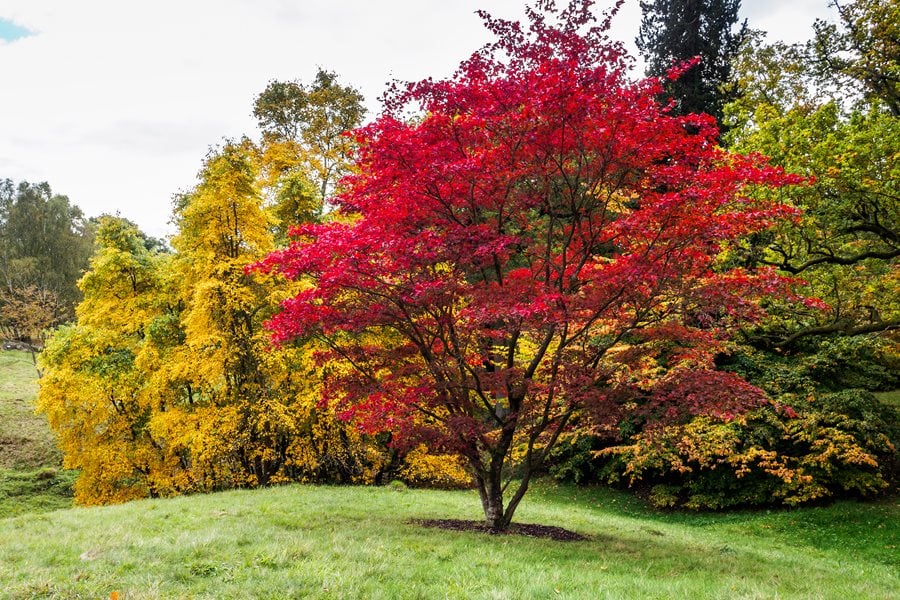
You spend time searching for the perfect Japanese maple (Acer palmatum) and you shell out your hard-earned money to buy the biggest one you can afford – and that’s only the beginning.
Then you need to dig that giant hole and plant the darn thing, not to mention all the care that goes into raising it.
It’s no wonder you want to know how long your investment is going to last, thriving in the landscape as a beautiful specimen.
We link to vendors to help you find relevant products. If you buy from one of our links, we may earn a commission.
Some trees can live for thousands of years, like bristlecone pines, and others are here for just a few decades, like some palms. Japanese maples fall somewhere in the middle.
In this guide, we’re going to go over how fast these elegant trees grow, how long they can live, and what you can do to influence their lifespan.
Here’s what we’ll go over:
Japanese Maple Lifespan and Longevity
Whether you inherited a house with an older specimen in the yard or you’re planning for the future, it can be helpful to know what to expect.
Of course, caring for trees often includes an element of the unexpected, and you never know when a disease or storm will take one out.
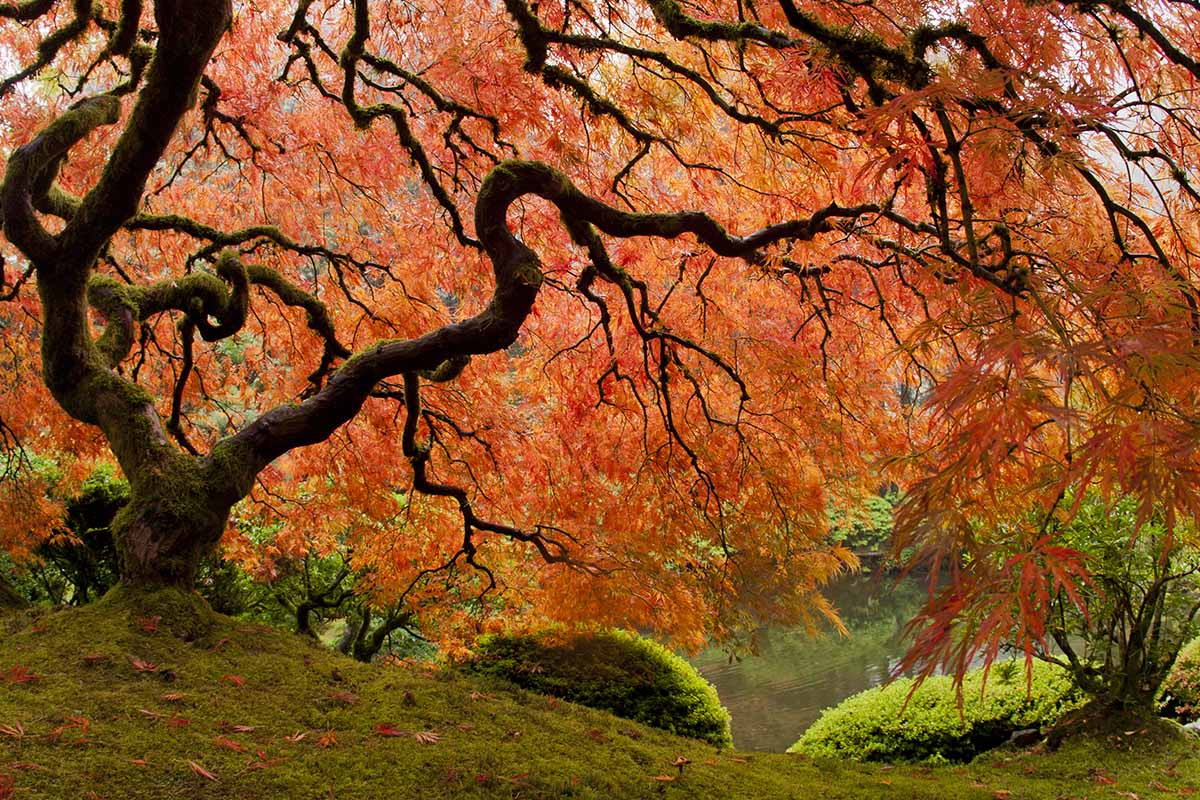
But in general, how long can you expect your investment to continue paying dividends through years of enjoyment, with colorful foliage and lush growth?
Let’s find the answer.
How Fast Do They Grow?
Japanese maples are slow growing, though there are a few varieties with moderate growth rates.
Most can be expected to grow anywhere from just a few inches to up to a foot per year. Within 10 years after planting, your average specimen might be only seven feet tall or so.
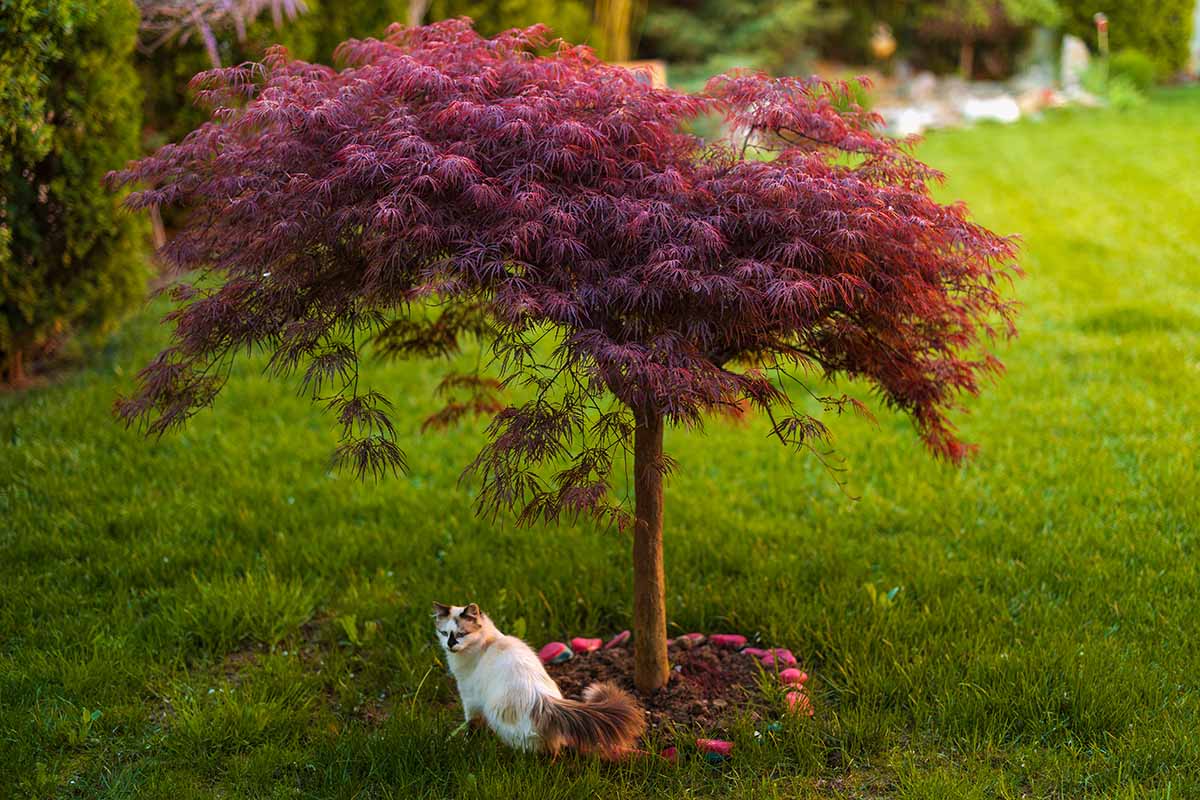
Others might reach 15 feet after 10 years, depending on the cultivar and conditions, though these are a bit less common. There are even a few types of Japanese maples that barely reach five feet in two decades.
The growth rate depends in part on the ultimate mature size of the plant at hand. Dwarf types tend to grow more slowly, though they have less growing to do. Larger cultivars will often grow more quickly.
How Long Do They Live?
Japanese maples can easily live for decades if properly cared for. There are many examples of these trees living for over a hundred years, and there are even some confirmed to be centuries old!
Some of these long-lived specimens are bonsai that have been lovingly cultivated for generations, while others are landscape trees.
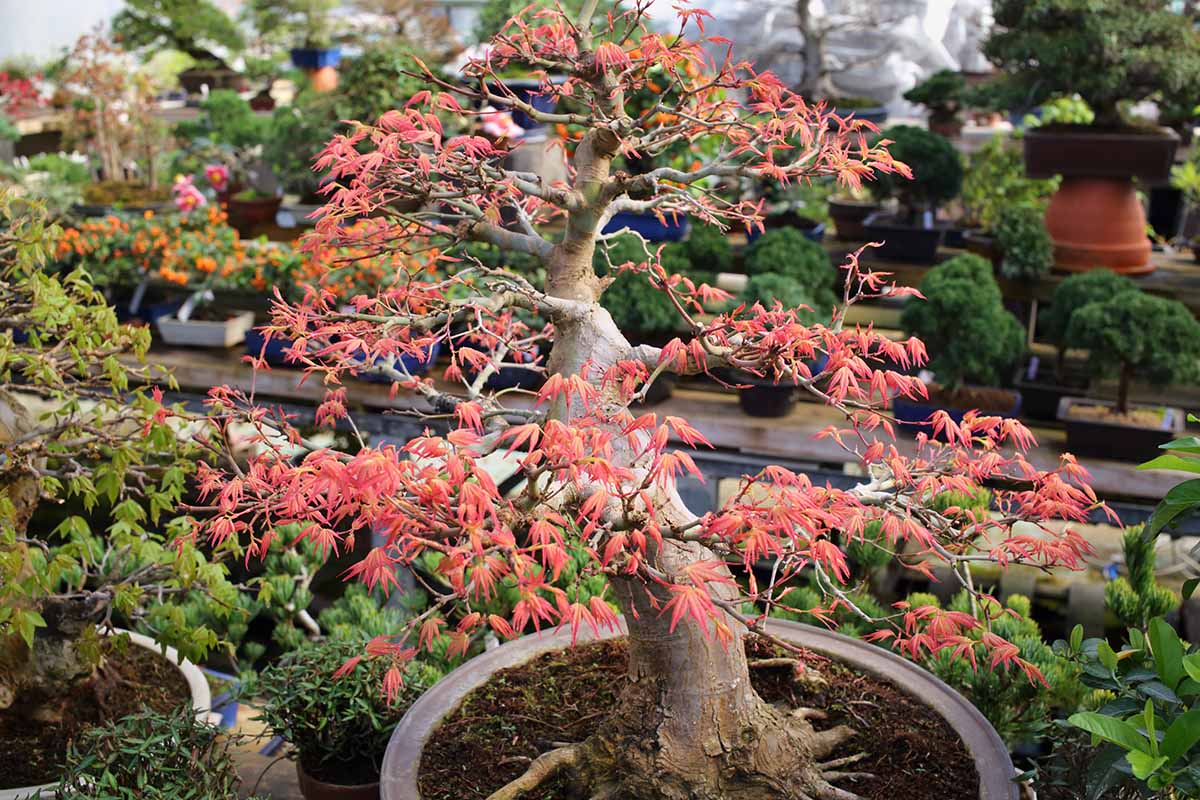
In Japan, where this tree is native, there is a 600-year-old weeping ‘Nakakamado’ on the Seizenji Temple grounds that is a protected national treasure.
In the West, where it is a more recent transplant, there is a beautiful A. palmatum in Leiden, a city in the South Holland province of the Netherlands, which has been confirmed to be at least 160 years old.
It was planted around 1860 and is still growing happily at its mature height of 27 feet.
Less impressively, I have a 15-foot-tall specimen in my yard that was planted when my house was built in 1932 and it’s still putting on a show despite several decades of neglect prior to my time as caretaker.
I’ve been gradually pruning it back into shape but it shows no signs of suffering from its trials.
In other words, you can expect your specimen to live for over a century with proper care – and maybe even without it. Once these trees are established, they can be pretty sturdy.
Conditions That Impact the Lifespan of These Trees
To put it simply, the less stress your A. palmatum experiences, the longer it may live.
Trees that regularly experience drought, heat stress, winter damage, and sunscald are more prone to disease and pest problems. That makes them more likely to die prematurely.
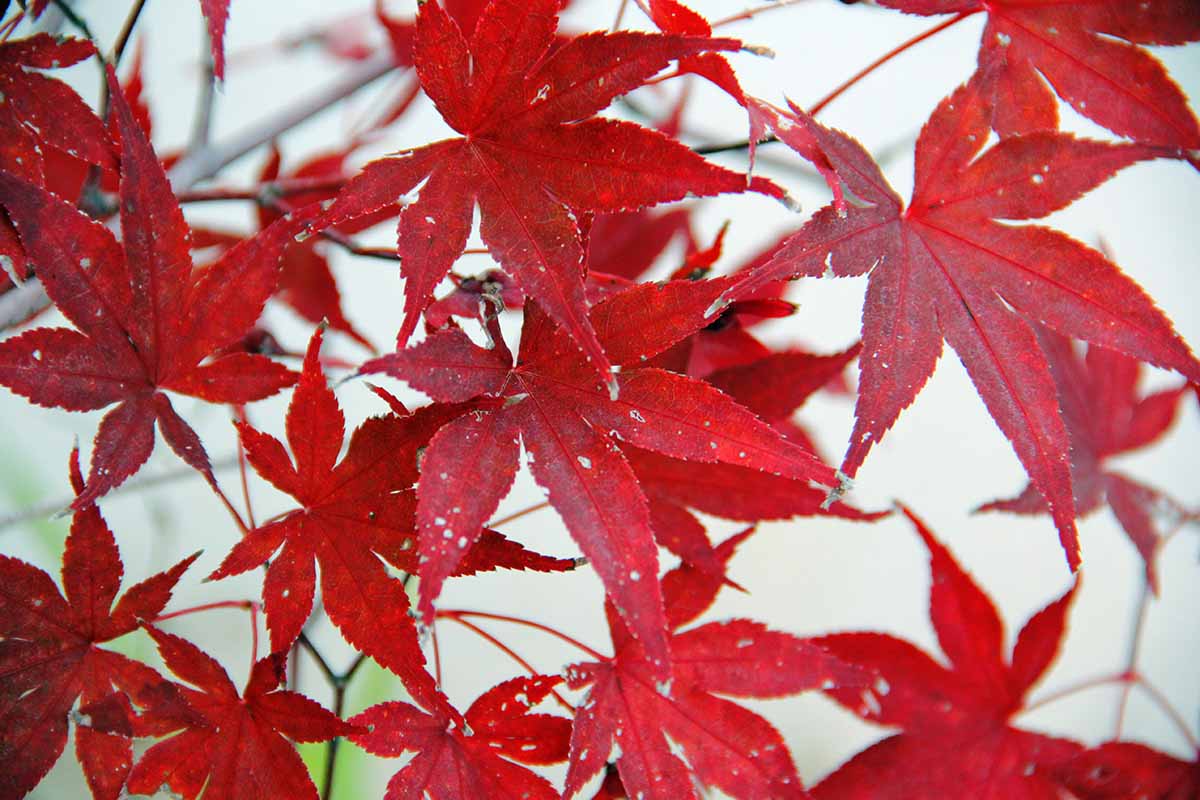
You don’t have to pamper your trees like they’re fragile heirlooms. So long as you’re providing what they need in a spot that is appropriate for them, they should live a good, long while.
We have a Japanese maple growing guide that aims to help you make your plants as happy as possible so you can enjoy them for decades to come.
Your Japanese Maple May Outlive You
Isn’t it nice knowing that you can plant something now, and people generations from now might be enjoying it still? There’s longevity to gardening that makes our brief time on the planet more impactful in a positive way.
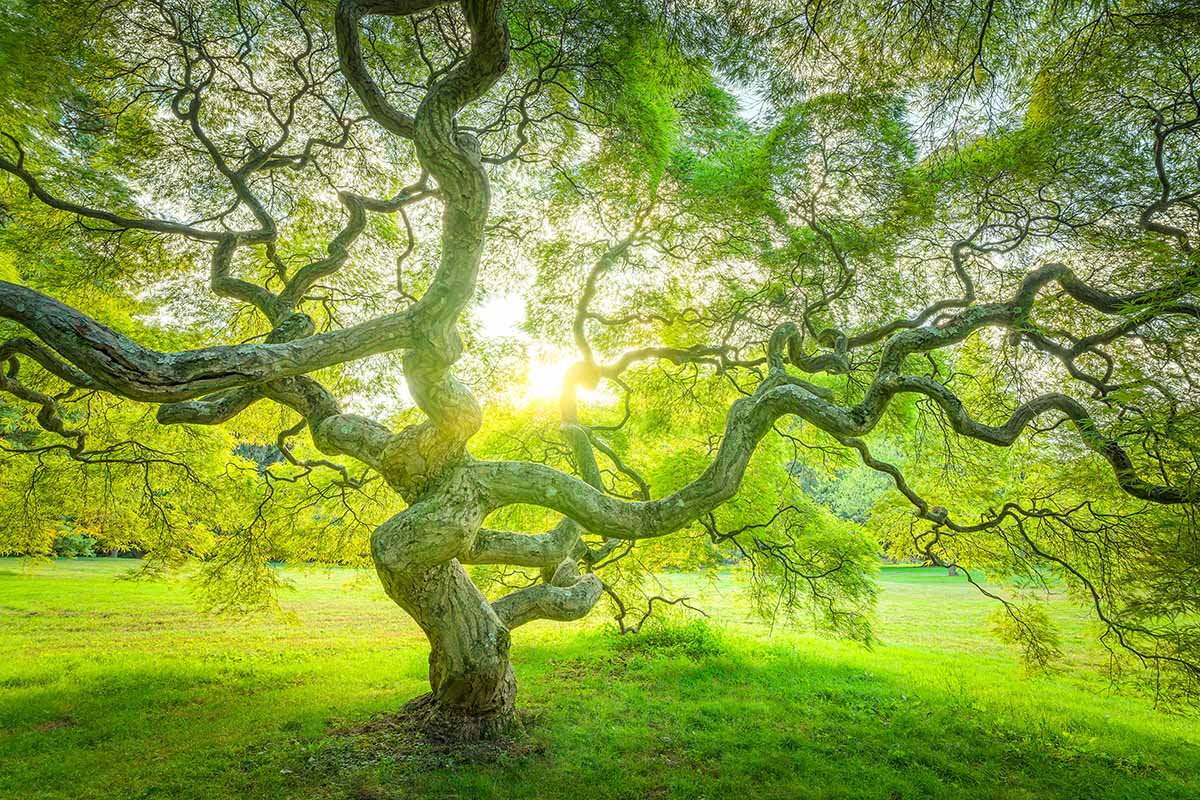
Did this guide answer your burning questions about these distinctive and fascinating trees? Let us know in the comments section below!
Looking to learn more about Japanese maples? Then check out a few of our other guides next, starting with these:
